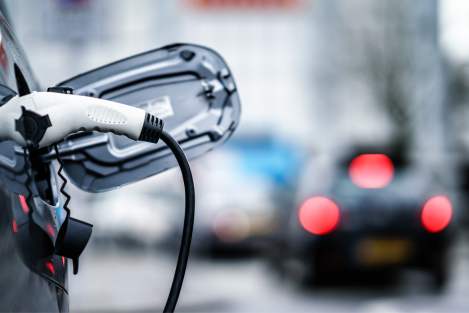
Written by Nolan Wilson Updated on Nov 11, 2025 5 mins read

Canadian consumers want to know if electric vehicles can handle our harsh winters. Although electric vehicles are common in other cold countries, Canadians are concerned about how well even some of the best electric vehicles can do when the temperature drops.
If you currently own an EV or plan to make the switch in the next couple of years, here is what you can expect to drive an electric vehicle in winter. Don’t forget to pick up a new set of snow tires to lower your electric car insurance for the season!
Like all vehicles that have to face winter driving, harsh road conditions and frigid temperatures, electric cars are no different. It’s worth considering that electric trucks are available, and consumers are gaining more confidence in the ability of EVs to get drivers through winter outside of city regions.
Yes, it is safe to drive an electric vehicle even in freezing conditions. There is no risk of damaging the batteries from harsh weather. Batteries are designed to use less power than fuel vehicles because there are no liquid components.
Similar to gas cars, lower temperatures affect how fast the battery can heat up. The issue is how EVs perform in the winter, but the impact the cold has on the battery. Winter weather impacts EVs because the battery can produce less current – if it is not charged fully, it can become depleted faster. When the weather is cold, you also have the heat on, which can reduce the battery range. According to a report by CBC, EV range in the winter can drop around 30%. It’s important to note that the battery decrease is due to added power demands, not how the car operates in the winter.
Cold weather can slow down a battery's chemical and physical reaction, leading to a slower charge. As we mentioned above, the range lowers in cold weather because the car relies on the battery for heating systems. Consumer Reports found that, “EV batteries lose range not because of how the cold weather affects the physical battery but because of the added power demands that come from operating the car in cold weather.”
It’s well known that EVs lose their range in the winter. According to CAA Quebec, the Nissan Leaf, for example, VEQ calculates that its average range decreases by about 25% at -15°C, and about 45% once it’s -25°C. However, with a few simple tips, you can maximize your electric vehicle range in the winter.
To ensure your EV is ready for winter, you can prepare by following a few steps. Aside from ensuring your vehicle has proper wiper blades and seasonal car maintenance, you can winterize an EV by following these tips.
You’ll always want to ensure you have a few key items in the truck of your car in case of an emergency. Here is a list of items to keep in your EV over winter:
It is also worth looking into roadside assistance just in case anything happens.
Canadians see extremes of good and bad weather. If you have an electric vehicle, selecting a charger engineered for low temperatures is highly recommended. Chargers should be weather resistant and withstand temperatures under 0°.
Outdoor installations should be a hardwired 240V station. You’ll want one that is enclosed and provides protection from the elements. Hardwired options provide better weather protection for the power connection.
Smart charges can allow you to schedule charging from the comfort of your home. You can also charge the vehicle outside peak electricity hours to save money and choose a slower charge, which is ideal for the battery in cold weather.
Canadians can drive hybrid vehicles in the winter – batteries can perform well in low temperatures. Note that fuel economy can decrease by 20-35% in winter, and batteries can drop their range by 40% in the winter. All it takes is some planning ahead and proper winter maintenance, and you’ll conquer anything winter throws your way, even with a hybrid.
It is highly recommended to warm up electric cars before driving because it can help improve the range. You can either turn on the heat while it’s charging or simply keep it plugged in before you begin your commute in Canada.
When possible, you should park your electric car in a garage for the winter. By keeping the vehicle warmer, you’ll spend less time (and battery power) warming it up before you hit the road.
| Categories | Auto |
|---|---|
| Tags | Driving TipsElectric |
Read our insurance blog to get helpful tips, information and news.
Learn about Canada's new Electric Vehicle Affordability Program (EVAP). Discover how the $50,000 transaction rule works, which cars qualify, and how to claim your rebate.
Fatal collisions in Canada rose 9.14% from 2019 to 2023. Discover the latest road safety statistics, provincial rankings, and how these trends affect your auto insurance rates.
Find out if a seatbelt ticket will raise your car insurance rates and how insurers view seatbelt violations.
Ontario’s Project CHICKADEE dismantled a $25 million auto theft ring. Discover how this massive bust targets export enablers and what it means for rising Canadian insurance premiums.